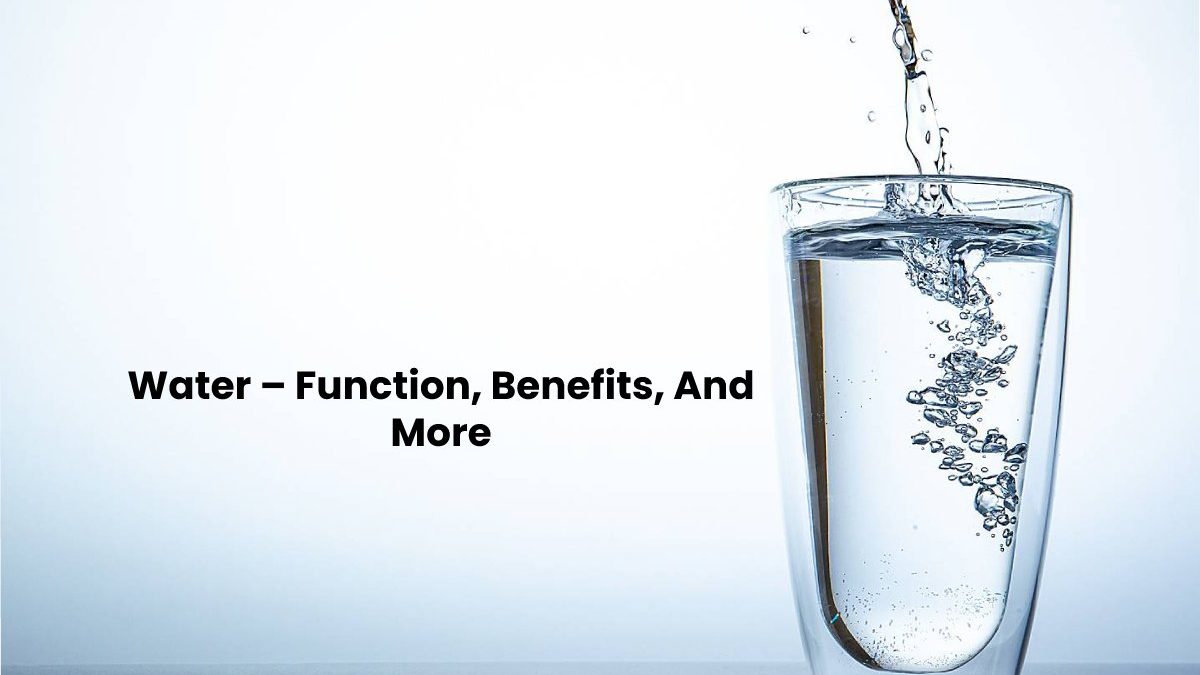Table of Contents
Introduction
Water Benefits: The chemical formula of water is H2O. It is also called dihydrogen monoxide. The 2 is the subscript for H, which symbolizes the presence of 2 Hydrogen atoms. Thus, we can say that there is hydrogen bonding in water. Therefore, water covers two hydrogen atoms and one oxygen.
Functions and Content of Water in the Body
In a study on the “physiology of hydration in adults”, the Hydration for Health association talks about water’s functions in the body and the content of water in the body. Let’s see them below.
In this research, they point out that water is essential to regulate body temperature through “sweat evaporation” and is responsible for transporting nutrients and collaborating to eliminate waste through urine. Similarly, it has other vital functions in the body, such as the construction of cells and body fluids.
Depending on the person and, specifically, on their body mass, the composition of water in the body varies. Thus, “age, sex and physical form influence the body’s total water content”.
1. Water Helps Your Kidneys

Your kidneys pass the body’s main toxin, blood urea nitrogen; this is a water-soluble waste emitted in the urine. It means that you need sufficient water in your body for this process to be carried out correctly.
Your kidneys do a fantastic job of cleaning. When getting enough fluids, urine flows freely, is evident in color, and is odor-free. However, when the body doesn’t get enough fluids, urine concentration, color, and odor rise because the kidneys trap extra fluid for bodily functions,” nephrologist, Steven Guest explained for WebMD.
The professional doctor also added that chronically low fluid intake is related to a higher risk of kidney stones, especially in hot climates.
2. Maintains Body Temperature
It is an especially significant benefit for our readers who love exercise or live in hot places. Hydration is critical to maintaining your body temperature.
Your body loses water over sweat through physical activity and in hot environments. Sweating works to keep your body relaxed, but your body heat will rise if you don’t fill the H2O you lose. Why is this happening? What occurs is that your body loses electrolytes and plasma when it is dehydrated; if you are sweating more than normal, you should drink a lot of H2O.
3. Normalizes Blood Pressure
No doubt! There is a connection among H2O consumption and blood pressure. Patients with blood pressure abnormalities may use a large glass of this fluid to help regulate their pressure. This was confirmed by researchers at the Vanderbilt Center for Autonomic Dysfunction, who informed that H20 has a decisive result in increased blood pressure.
4. Water Can Help Control Calories
At this point, the first thing to clarify is that water does not have any magical effect on weight loss; what does work is to increase its consumption to put aside sugary drinks that provide a lot of calories.
“Choose water over a caloric beverage and eat water-rich foods because they are healthier, more filling, and help reduce calorie intake” Penn State, author of The Volumetrics Weight-Control Plan.
There is no universal consent on how much it to consume each day, as individual needs vary, but there is some agreement on how much is a healthy amount.
According to the Institute of Medicine (IOM), an adequate H2O intake for men is approximately 3 liters per day; it is 2.2 liters per day for women.
The ideal intake will vary from person to person depending on factors such as the following:
- activity level
- Climate
- Age
- Diet
- Diseases
Conclusion
Although most water consumption comes from beverages, it is also consume through the foods we eat, particularly fruits and vegetables. In general, you should drink enough fluids so that you are barely thirsty and your urine is clear or pale yellow. If your urine is dark amber yellow, you could be dehydrate. If you are concerned that you are not drinking enough H2O, consult a doctor or nutritionist who will help you determine the amount of water right for you.
Helpful Resources:
What is Email Marketing Templates? – Work, Types, Benefits, and More

